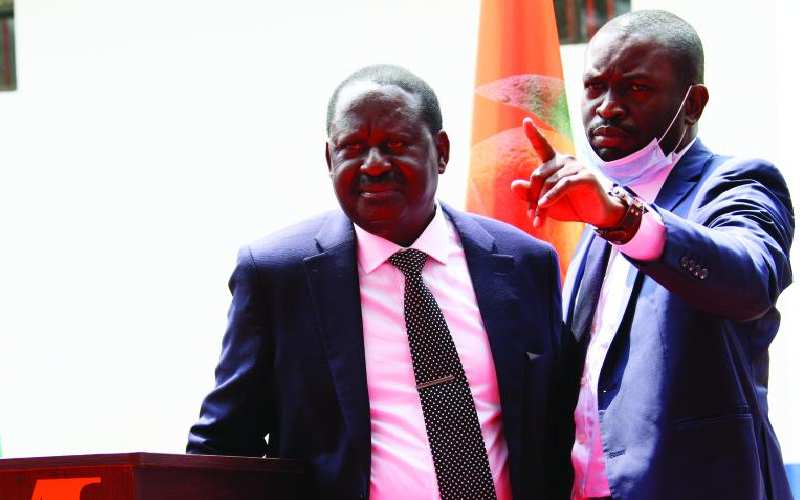File image of Raila Odinga and Edwin Sifuna/Photo Courtesy
Azimio la Umoja has announced that cameras will be mounted in different parts of the country during the planned mass protests.
According to National Assembly Minority leader Opiyo Wandayi, the coalition has also set up a secure web platform where Azimio supporters upload violent footage during the demos.
“All those that intend to cause mayhem will also be captured through a number of our IP-enabled spy cameras that will transmit to our cloud servers in real time.
“In the face of real threat to the free media, Kenyans need a secure web platform where members of the public are invited to post occurrences,” Wandayi stated.
According to Azimio the web portal will accept photo, video and audio evidence during the protests.
“This material will be available for the world to see. This will enable us to keep the public and all stakeholders informed of progress and real-time occurrences across the country,” Wandayi noted.
Azimio also disclosed that anyone with a phone or a camera can access and post anonymously or remotely view the material.
This comes after the Inspector General of Police Japhet Koome states that the Azimio anti-government protests are unlawful.
“People are allowed to come to the city. However, if you have plans to bring violence and if you are armed with offensive weapons you will face the music,” the IG announced.
He added,”We have been restraining ourselves and we can’t do that anymore. We must come out as the police to ensure law and order is maintained. Try us tomorrow and you’ll see. Whoever you are, I will deal with you.”
The IG also warned politicians who are on record intimidating junior officers while performing their responsibilities noting that no one will be given special treatment. KDRTV






